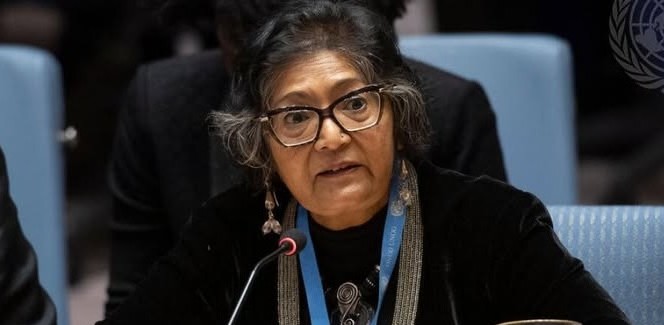
The United Nations Commission on Human Rights in South Sudan has warned the UN General Assembly that the country’s fragile peace process is in serious jeopardy, amid escalating armed conflict, political detentions, and widespread human rights violations.
Speaking to the Assembly’s Third Committee, Commissioner Barney Afako said that South Sudan’s 2018 Revitalized Peace Agreement once seen as the roadmap to stability is now under threat of total collapse.
He cited repeated violations of ceasefire provisions, partisan deployments, and the use of aerial bombardments in civilian areas by government forces.
“South Sudan’s political transition is falling apart. Political detentions have become a tool of repression, and key provisions of the peace agreement are being systematically violated,” Afako said. “All indicators point to a slide back toward another deadly war.”
The Commission reported a sharp escalation of armed clashes since March, with over 370,000 civilians newly displaced, while neighboring countries now host 2.5 million South Sudanese refugees.
Internally displaced persons total two million, alongside nearly 600,000 refugees from Sudan.
Commission Chair Yasmin Sooka said civilians are paying the heaviest price:
“Women are being raped, children forcibly recruited, and entire communities are living in fear. This war is man-made and preventable. Political leaders must be held accountable, and justice can no longer be optional.”
The Commission’s findings also point to corruption as a major driver of conflict. Commissioner Carlos Castresana Fernández highlighted billions in oil revenues being siphoned off while public services collapse.
Hospitals lack medicines, schools have no teachers, soldiers remain unpaid, and elites profit through opaque contracts and off-budget deals.
The Commission called on the UN, African Union, and regional partners to take concrete measures, including:
Protecting civilians from violence and human rights abuses, ensuring accountability for political and economic crimes, accelerating the establishment of the Hybrid Court for South Sudan and engaging all actors, including those currently outside the peace framework, in a credible and inclusive political transition.
“South Sudan’s people cannot endure another collapse,” Sooka said. “The international community must move beyond expressions of concern to coordinated, concrete action. Otherwise, the suffering will only intensify.”
The UN panel’s latest report follows warnings issued in February and September, documenting ongoing armed clashes, extrajudicial killings, sexual violence, and forced recruitment of children.
The report also details how political reshuffles, partisan appointments, and local militia exploitation of tribal divisions have deepened mistrust and undermined governance structures, threatening the country’s hard-won stability.

